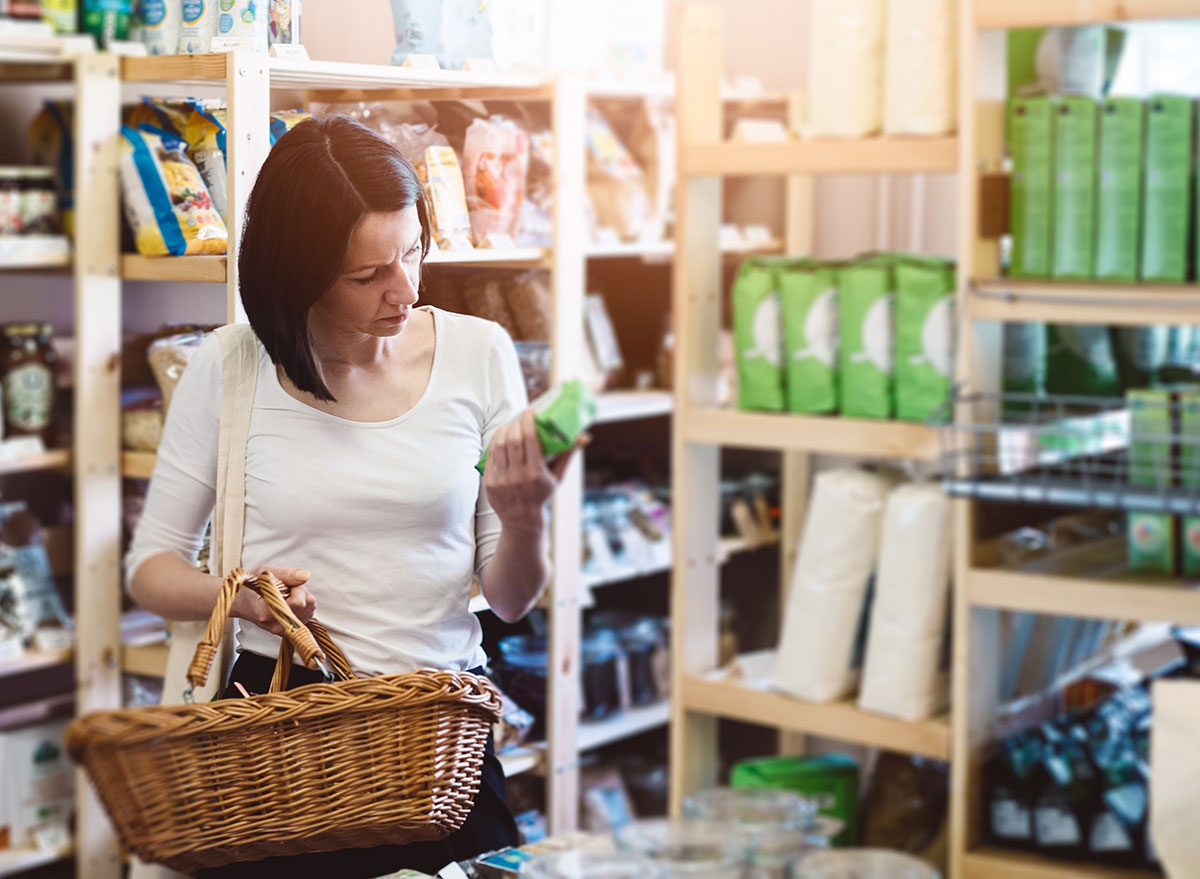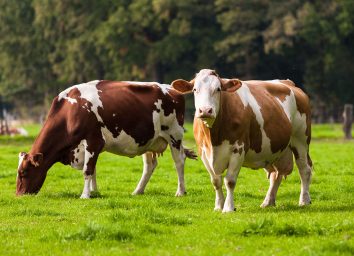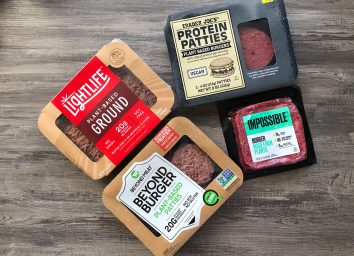There’s a Brand New Food Label You Need to Know About

Checking nutritional labels on food packaging is one of the most important ways we judge our food choices. We can quickly assess how healthy or unhealthy something we’re about to eat is by learning its calorie, sugar, sodium, fiber, and saturated fat contents. But if we’re willing to do this due diligence for our own wellbeing, why can’t we do it for the wellbeing of the planet? Turns out, now we can.
With the general public’s growing interest in the fight against global warming, food companies are moving forward with efforts to label their products with carbon footprint labels. It means that you’ll be able to assess just how much the food you’re eating has contributed to global warming by way of its production and transportation.
Just Salad, a fast-casual New-York-based salad chain, is pioneering these efforts in the fast food industry. A long-time innovator in sustainability, the company has announced that carbon footprint labels will be added to all of their menu items in September. The labels will show the total estimated greenhouse gas emissions for each menu item based on its ingredients, calculated using carbon emission data for hundreds of foods.
Similarly, plant-based milk brand Oatly has added carbon labeling to their products back in 2018. Currently, the information is available on their website and on the packaging of some of their products in Europe, but the company plans to bring the carbon labels to their product packaging in the U.S., too. “As people become more and more aware of the environmental impact of what they buy, we absolutely expect carbon labelling to become common-place and for it to influence purchase decisions,” a spokesperson for Oatly told Forbes.
Why should I care about the carbon footprint of my food?
Carbon emissions are the number one cause of global warming, and currently, food production accounts for about 26% of the world’s carbon emissions. As consumers, each of us can make a big impact on the food industry’s devastating effects on climate change by choosing products with a smaller carbon footprint. The new carbon labeling system can help us parse out the worst offenders among food products.
For example animal products have a larger carbon footprint than plant-based foods. Livestock production is one of the biggest contributors of carbon emissions, and raising cows for meat is especially harmful. According to data published by Quorn, a plant-based meat company spearheading carbon labeling in Britain, the carbon footprint of a kilogram (about 2.2 pounds) of minced beef is more than 20 times higher than that of the same amount of their plant-based meat substitute, and about 30 times higher than a kilogram of bananas. Learn more about the Reasons You Should Stop Eating Meat Right Now.
“Food is the strongest lever we have as individuals for fighting climate change,” Just Salad’s chief sustainability officer Sandra Noonan told Forbes. “If, as a society, we start paying attention to our dietary carbon footprints, much as we pay attention to our daily caloric intake, we could alter the course of planetary history.”
Don’t forget to sign up for our newsletter to get the latest food and grocery news delivered straight to your inbox.








